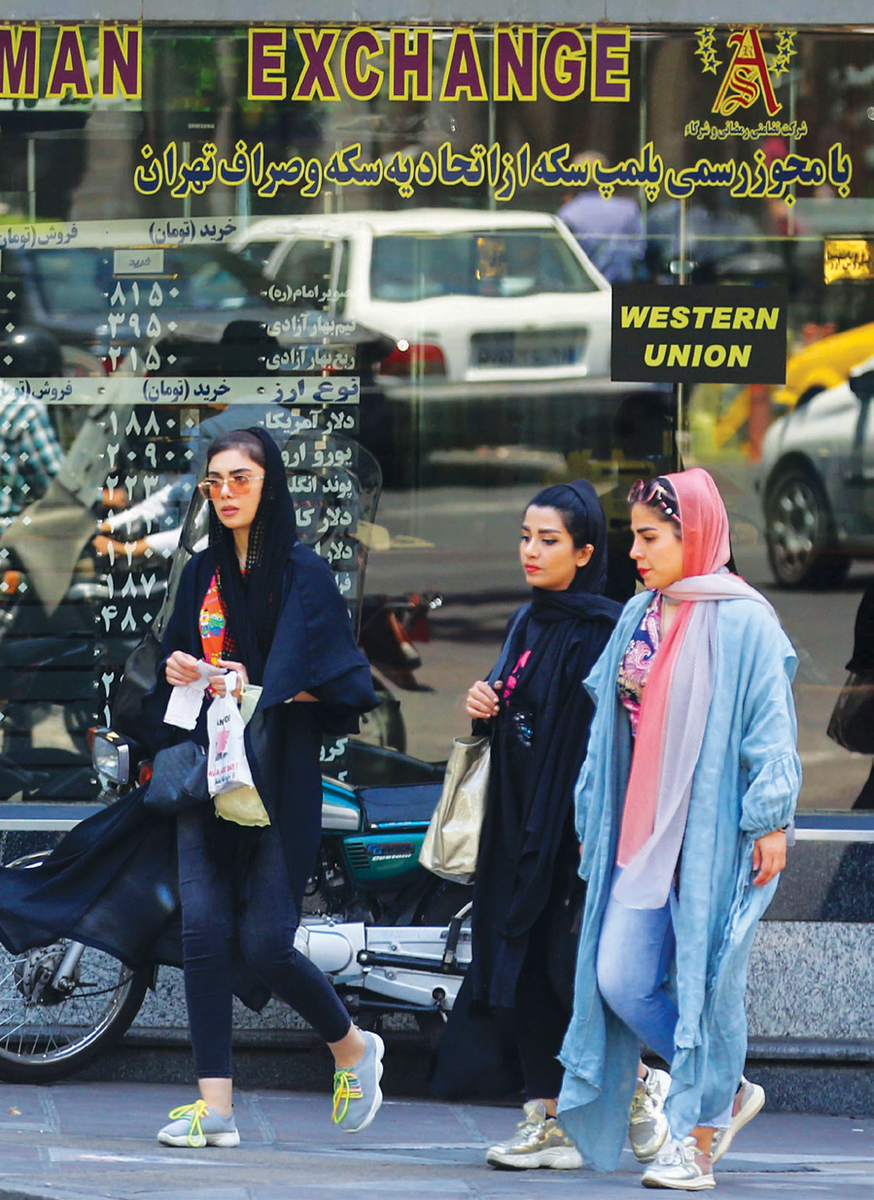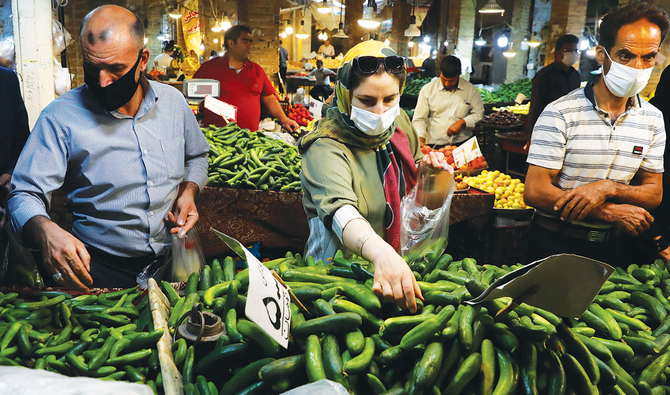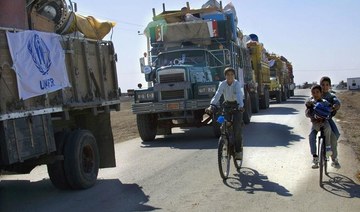DUBAI: Desperate to afford her daughter’s overseas university fees, 58-year-old retired Iranian teacher Maryam Hosseini withdrew all her savings from the bank to buy US dollars.
It was not enough. With three years of study still to do, her daughter is heading back home, her future now on hold.
Hosseini’s tale of growing poverty is an increasingly familiar one among Iranians, who have long bought US dollars to support their children financially or squirrel away savings.
“My daughter has to bury her dream of studying abroad and she has to come back. I cannot afford it anymore,” Hosseini said.
The cause of Hosseini’s misery was a sharp drop in the Iranian rial to its weakest against the US dollar. The currency’s fall has not only made life more expensive, it may also test Iran’s ability to prop up an economy battered by crippling US sanctions and the new coronavirus.
The dollar was being offered for 215,000 rials on Monday, according to website Bonbast.com, against an official rate of 42,000.
The currency plunge in recent weeks had forced the central bank to act, pumping hundreds of millions of dollars into the market to stabilize the rial. Central Bank Governor Abdolnasser Hemmatti described the interventions as “wise and targeted.”
The bank had ample foreign reserves, he said, without disclosing their amount.
But current account and fiscal deficits brought on by the economic crisis may require tapping those reserves, weakening Iran’s ability to curb rampant inflation, economists have said.
“They have limited foreign exchange reserves to inject in the market and will not be able to contain further depreciation in the presence of US sanctions and isolation from the international community,” said Garbis Iradian, chief economist for the Middle East and North Africa at the Institute of International Finance.
The rial has lost 70 percent of its value following the US withdrawal from Iran’s 2015 nuclear pact with six powers in 2018, and its reimposition of sanctions.
The government has sought to compensate by creating several foreign exchange rates aimed in particular at easing the financial burden of importers.
But in the free market, the rial has continued its downward spiral, even after the latest central bank intervention.

Iranians walk past a money exchange in the capital Tehran, many of which now refuse to sell dollars. (AFP)
Its recent fall is partly sentiment driven, coming after the UN nuclear watchdog urged Tehran to stop denying it access to two suspected former nuclear sites, and partly a result of a broader economic deterioration due to coronavirus.
But it might also signal a deeper shift.
“A more fundamental factor is the shift of the current account from a traditional surplus to a small deficit in 2020 due to the collapse in oil export revenues,” said Niels de Hoog, economist at Atradius, a trade credit insurance firm.
He said the central bank was estimated to still have enough reserves to support the rial, but they were eroding as they were helping finance the budget deficit.
Hit by US sanctions, oil exports are estimated at 100,000 to 200,000 barrels per day (bpd), down from more than 2.5 million bpd shipped in April 2018.
The International Monetary Fund estimates Iran will draw down nearly $20 billion of reserves this year to $85.2 billion and another $16 billion next year.
The state budget deficit is estimated to hit $10 billion by March 2021, Tehran Chamber of Commerce, Industries, Mines and Agriculture head Masoud Khansari was quoted as saying by media. He said growth in the budget deficit and money supply would bring higher inflation, a weaker rial and less purchasing power.
The government has asked Iranians not to flee the rial to buy foreign currency, and most traders in central Tehran exchange offices have been refusing to sell dollars, said trader Soroush in Tehran, who declined to give his full name.
“When the US dollar started to gain value against the rial, people rushed to the exchange offices to buy dollars but now it is calm,” he said.
But few now escape hardship. From the business elite to ordinary workers, most feel the impact of the sinking currency.
With rising taxes, falling subsidies, foreign markets limited by sanctions, and difficulty obtaining hard currency needed for trade, more and more businesses report problems.
“The currency crisis and trade sanctions have paralyzed us. There is also a shortage of raw materials,” said a furniture factory owner in the northern city of Rasht.
Prices of basic goods like bread, meat and rice increase daily. Meat is too dear for many, costing $10 a kilo. The media regularly report layoffs and strikes by workers who haven’t been paid for months, including in government-owned factories.
“Life is very expensive. My salary is not enough to make ends meet. We are becoming poorer every passing day,” said government employee Reza Mahmoudzadeh.
With inflation estimated at 34.2 percent this year, according to the IMF, most Iranians are braced for more price hikes.
Iran’s clerical rulers want to prevent a revival of the unrest of Nov. 2019 that began over economic hardship but turned political, with protesters demanding top officials step down.
























